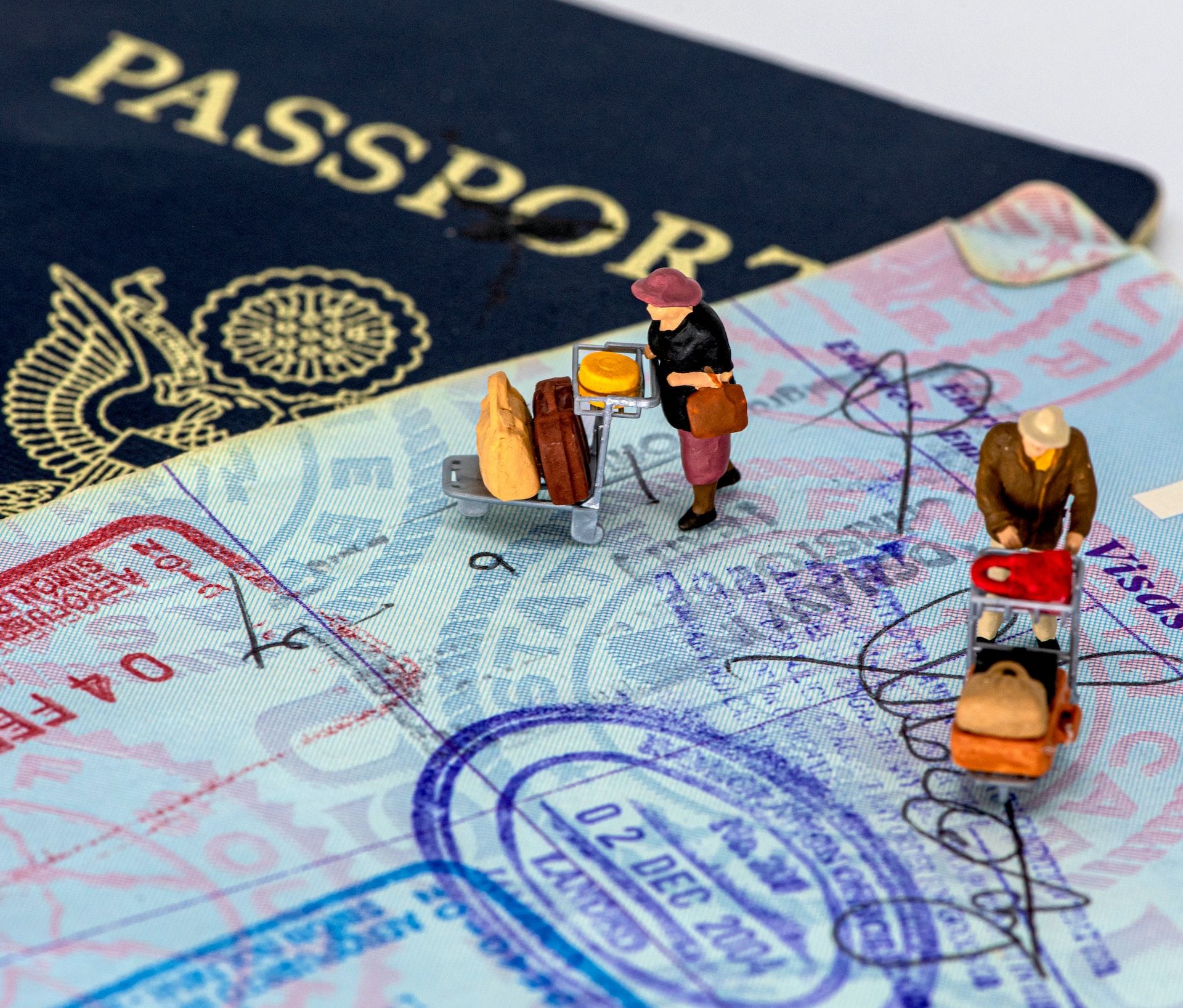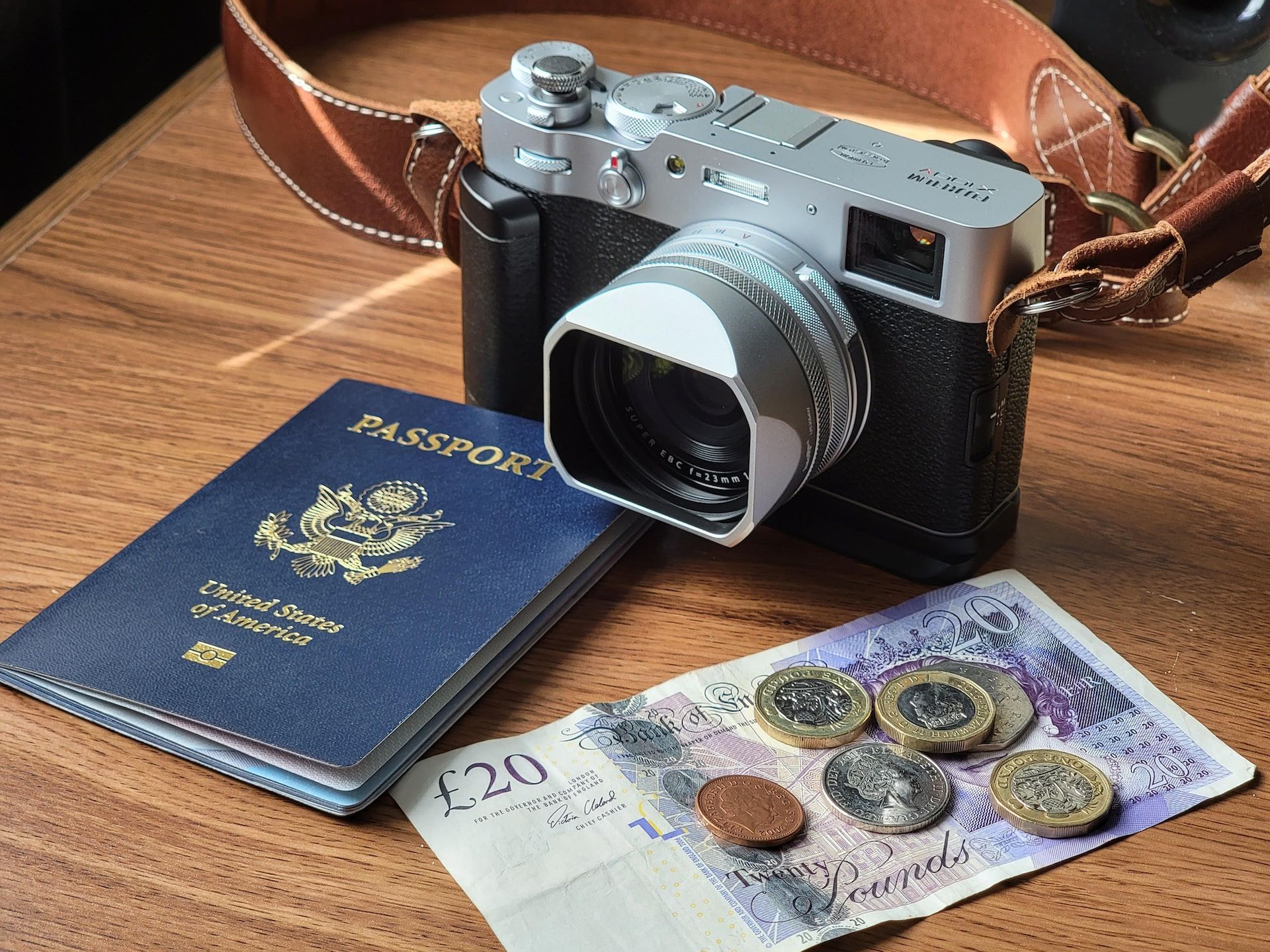The rise in remote work has made it possible for more and more travelers to earn a living while also seeing the world. These unique travelers are often referred to as digital nomads, as they possess the freedom to explore the globe while maintaining their careers through remote work on their computers and phones.
Although this lifestyle offers incredible, once-in-a-lifetime experiences and rewards, there are some factors to keep in mind before embarking on this journey to working, living, and traveling as a digital nomad. From visa restrictions to long-term storage options, here are some important things to know about becoming a digital nomad.
1 What Qualifications Are Needed To Become A Digital Nomad?
There are no strict degrees or specific skill set requirements for becoming a digital nomad. Anyone can become a digital nomad if they have a computer, stable internet connection, and the means to earn a living remotely.
Having some experience in certain types of digital nomad jobs and remote-friendly professions such as programming, digital marketing, writing, or graphic design can help make finding remote work easier, but the biggest skills needed to succeed are adaptability, self-motivation, and discipline.
- Short Answer: None, but certain job fields make it easier to get remote work.
- Best Job Fields for Remote Work: Web development, software management, digital marketing, writing, or graphic design
2 Can Someone Be Too Old To Be A Digital Nomad?
Age should never be a barrier to becoming a digital nomad. While some may think this lifestyle is reserved for fresh graduates in their twenties, this is simply not the case. In fact, a lot of digital nomads are in their thirties and forties or older.
Being a bit older might actually make it easier to find a remote job that meets the needs of this lifestyle. More mature digital nomads can more easily find a balance between adventure and career responsibilities.
- Short Answer: No
3 What Do Digital Nomads Do With All Their Stuff If They're Always Traveling?
One of the most daunting tasks digital nomads face at the start is what to do with their belongings. From heavy furniture to precious family photos, some items cannot be lugged around from city to city. Most digital nomads will need to seriously downsize and adopt a minimalist approach to what possessions they choose to bring with them.
Though some extra luggage can be easily shipped from country to country, many nomads sell and donate their bulkier items and put sentimental and important items in storage or safekeeping with a friend or family member. Digital storage solutions for photos and important documents are great options. In the end, downsizing not only lightens the load but also simplifies the nomadic lifestyle, making travel easier and far more enjoyable.
- Short Answer: Many digital nomads downsize and put the rest of their items in storage or leave them with a trusted friend or family member.
4 Do Digital Nomads Have To Pay Taxes?
The digital nomad lifestyle comes with many rewards: waking up to beautiful sights, traveling full-time, and enjoying a lower cost of living. Navigating the tax system, however, isn't one of these benefits. Digital nomads must navigate a complex tax landscape.
It's crucial for digital nomads to understand tax regulations in their home country, the countries they work from, and any potential tax treaties. Factors like residency, duration of stay, and income sources can impact tax obligations. Keeping detailed records, including proof of foreign income and tax payments, is essential. Consulting with a tax professional experienced in international tax laws can help streamline the process and prevent legal issues down the line.
Over time, it'll become easier to file taxes as a digital nomad, but the first couple of years will most likely be challenging.
- Short Answer: Yes, and the tax filing process can be difficult for digital nomads.
Some countries stand out as digital nomad-friendly destinations due to their enticing tax incentives. These incentives can include offering reduced or even zero taxes on foreign income. There are even many countries with zero income tax for digital nomads specifically.
5 Do Visa Restrictions Apply To Digital Nomads?
Digital nomads must be aware of the visa restrictions and legalities of working remotely while also traveling. Most countries have limits on how long a foreigner can stay within their borders, and different countries have varying regulations regarding remote work. Violating these laws can lead to deportation or fines.
Digital nomads should research visa options and consider whether a long-term stay visa or digital nomad visa is right for them. However, not all countries offer digital nomad visas; it's a fairly new initiative, so travelers must check beforehand. No matter what, digital nomads should always comply with local laws and tax regulations.
- Short Answer: Yes, most countries have limits on how long a foreigner can stay within their borders, and different countries have varying regulations regarding remote work.
6 Does It Matter Where You Travel As A Digital Nomad?
As with all things in life, the digital nomad lifestyle comes down to location, location, location. Picking destinations that align with an individual's lifestyle preferences, work requirements, and budgets is essential to sustaining this unique travel lifestyle. Digital nomads need to consider how time zones, internet connection, and access to workspaces will influence their ability to successfully complete their remote job responsibilities.
Cost of living is also a major component to keep in mind. Some destinations are much more affordable for digital nomads than others, and currency exchange rates can greatly influence budgets and travel schedules. There are even numerous affordable countries where digital nomads can live for less than $1,000 a month.
- Short Answer: Yes, some locations are very digital nomad-friendly while others are not.
7 What Is the Difference Between A Digital Nomad And A Remote Worker?
Though they both depend on their computers to earn their income, the main distinction between a digital nomad and a remote worker lies in their lifestyles. A digital nomad actively seeks adventure by traveling while working remotely, often changing locations frequently.
In contrast, a remote worker primarily works from a permanent location of their choice, which is usually also their home. Both share the ability to work outside of a traditional office, but their priorities and approach to work-life balance differ greatly.
- Short Answer: Remote workers tend to stay in a permanent location, while digital nomads are traveling often and working in new destinations.
8 How Much Should Digital Nomads Have Saved Up?
Though digital nomads can usually enjoy a lower cost of living, those starting off should aim to have about three to six months' worth of living expenses saved up to cover their flights, accommodation, food, transportation, and other basic needs in their chosen destination.
Additionally, it's crucial to set aside an emergency fund for unexpected medical expenses, travel changes, or damaged equipment. While the exact amount that should be saved varies depending on the digital nomad's destination and lifestyle preferences, a savings cushion provides financial security during rocky transitions and can be a lifesaver when unforeseen emergencies arise.
- Short Answer: 3 to 6 months worth of savings
9 Is It Possible To Be An Ethical Digital Nomad?
There's no denying there is much debate about the ethicality of digital nomads. These are foreigners who move through less economically developed parts of the world to take advantage of their lower cost of living. Though this cost of living is relatively cheaper for some foreign professionals, it's not cheaper for the residents of these countries. The presence of digital nomads can cause housing and resource shortages, which greatly affect locals.
Being an ethical, mindful, and respectful digital nomad involves respecting local cultures and environments. Digital nomads should learn about and follow the customs and traditions of the places they visit. They should try to support local businesses rather than big chains to boost local economies while also aiming to minimize their ecological footprints by reducing waste and conserving resources.
Additionally, digital nomads who want to make a positive impact on the places they visit can consider volunteering or supporting local causes.
- Short Answer: Yes
10 How Do Digital Nomads Deal With Loneliness?
One of the biggest complaints digital nomads report about their lifestyle is the loneliness that can come with traveling full-time. After a while, it can become hard for digital nomads to be away from family, friends, and people who speak the same language.
Digital nomads can combat this loneliness by actively engaging with the existing communities around them. Social media allows fellow digital nomads to get in touch, meet up, and even create co-working spaces where they can share experiences and form lasting connections. Digital nomads can also connect with already-established expat communities, which often offer a supportive network for newcomers.
Additionally, digital nomads should make an effort to connect with locals by attending cultural events, learning the language, or participating in community activities. These interactions not only ease loneliness but also provide a deeper and more enriching experience and sense of belonging while traveling the world.
- Short Answer: Digital nomads can combat loneliness by finding fellow digital nomads, joining expat groups, and engaging with locals.











